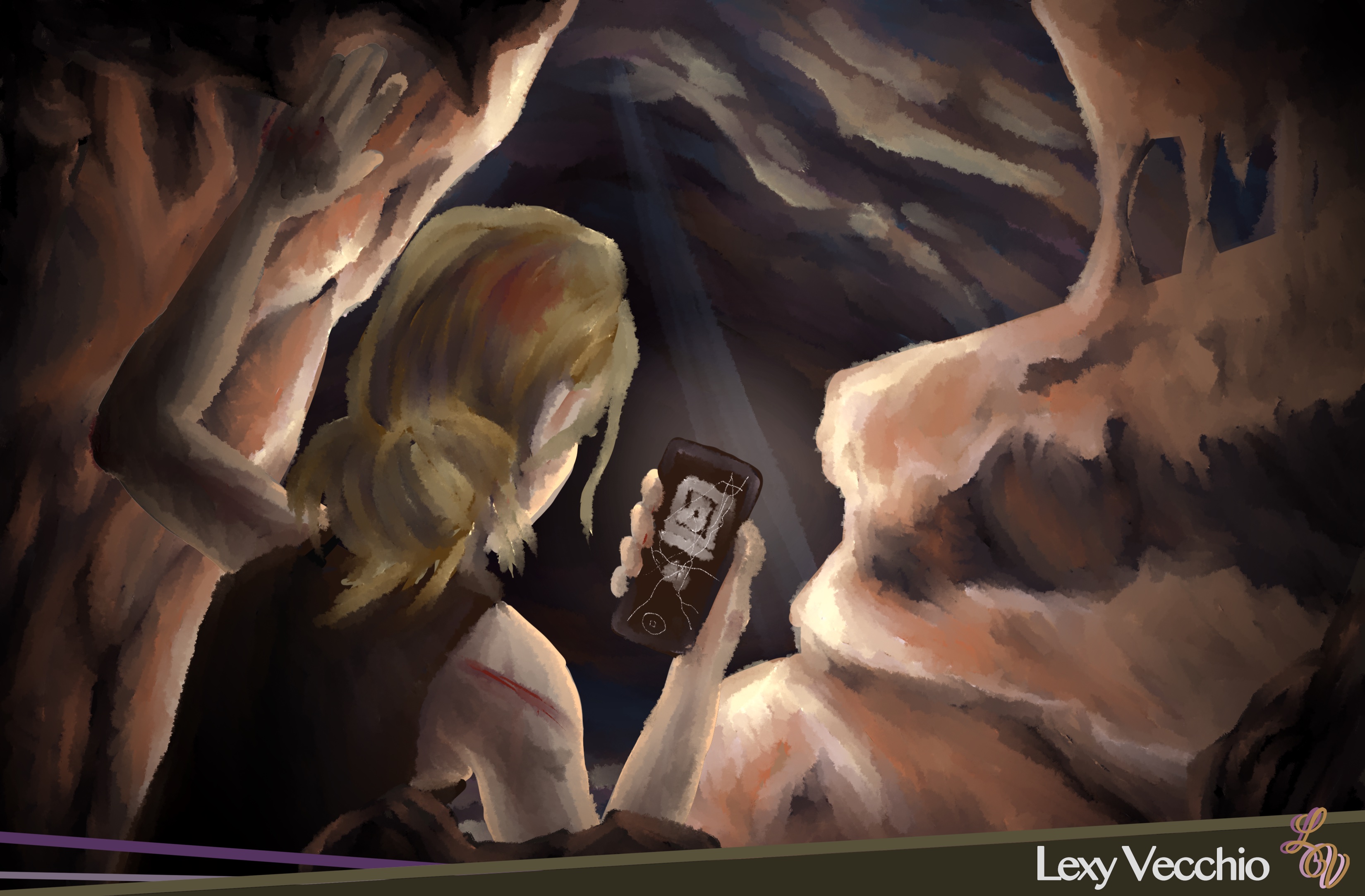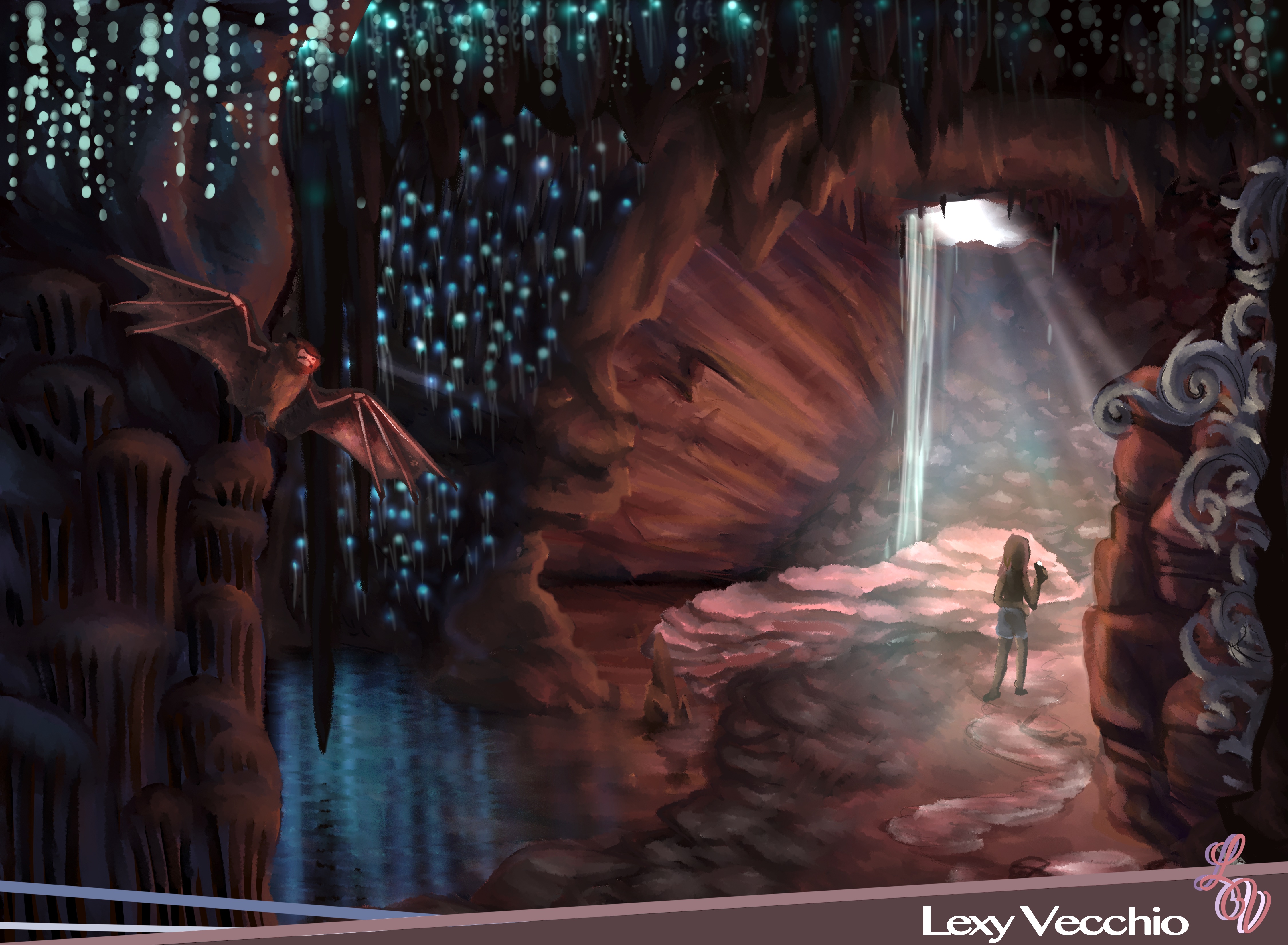

PTSDemo is the story of young woman, Sam, who lives with the repercussions of a traumatic spelunking accident in her teen years. The game, intended to be played in VR, does not show the original accident but uses the liminal setting of caves to have the player go through Sam’s experience when having a dissociative PTSD episode.
When a thunderstorm triggers Sam’s PTSD she explores the labyrinth of her mind through an out of body experience that brings her back into the cave system that caused her trauma ten years ago. Guided by a phantom voice from her phone, Austin, she explores looping actions, events, and spaces, all the while trying to keep from confronting the ghosts of the past.
Through the narrative, the player will experience what it is like, to stay in a cyclical event while uncovering the past that Sam has tried hard to put behind her.
CHARACTERS
Sam: Player character. Gender F. Current Age 27. When she was 17 Sam was in a serious spelunking accident which trapped her in a limestone cavern for two days. The cave in, which also killed her friend, Austin, left her with Simple Post-Traumatic Stress Disorder and survivor’s guilt. When she becomes alone or isolated she can experience post traumatic stress episodes which result in looping behaviors, time dilation, and fixation. While she does not hallucinate, she does occasionally experience dissociative episodes where she turns interior and gets stuck in looping thoughts about her time in a cave system and all the ways she could have gotten out or died. In reality, she did not travel very far from the original cave-in, and was found after two days when a passing hiker heard her cries for help through a ventilation shaft. She is aware of everything that happened but pushes the darker aspects to the back of her head. When surrounded by other people she will talk openly about her experience because, except under rare circumstances, she must be alone to be triggered.
Austin: Guide and voice on the phone. Gender - Written M, but could be any. Deceased. In-game, he acts as both an internal guide and the person Sam talks with throughout the episode. He died when he was 17. He was among the three friends with Sam when they went spelunking in a cave system in Eastern Pennsylvania. He texted Sam the message which caused her to drop her phone. He was the only one of Sam’s friends who heard her phone fall so he went back to check on her. When the area he and Sam were standing on caved in, he was trapped beneath a boulder, the rest of him crushed beneath it. He and Sam were both aware that he was not going to make it, but he was her companion for the time they spent in the cave. Throughout the VR experience he will talk with the player.
PRODUCTION
PTSDemo will finish up the preproduction phase through the summer and next fall. While not a game intended to help those who suffer from PTSD as a therapy option, the goal is to humanize the experience of Post Traumatic Stress Disorder for those who do not suffer from it, and to validate the experience of those who do.
I intend for the game to have both extensive trigger warnings throughout as well as resources for those who may need them. Additionally, I want to look into making a pre-care and after-care element for those who want to play the game, if necessary.
All suggestions are welcome!
For a more in depth look at the Story Outline and concept art, please follow the link at the top of the page!